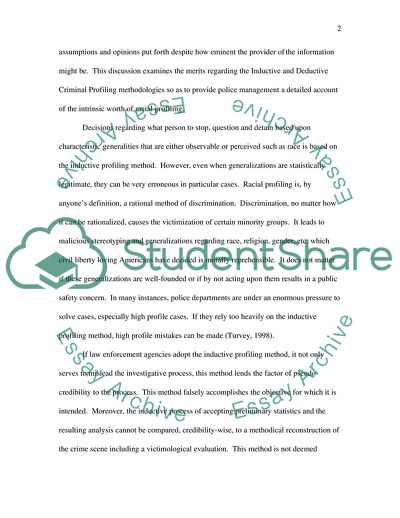Cite this document
(Racial Profiling: Inductive and Deductive Coursework - 1, n.d.)
Racial Profiling: Inductive and Deductive Coursework - 1. https://studentshare.org/sociology/1709788-criminal-justice
Racial Profiling: Inductive and Deductive Coursework - 1. https://studentshare.org/sociology/1709788-criminal-justice
(Racial Profiling: Inductive and Deductive Coursework - 1)
Racial Profiling: Inductive and Deductive Coursework - 1. https://studentshare.org/sociology/1709788-criminal-justice.
Racial Profiling: Inductive and Deductive Coursework - 1. https://studentshare.org/sociology/1709788-criminal-justice.
“Racial Profiling: Inductive and Deductive Coursework - 1”. https://studentshare.org/sociology/1709788-criminal-justice.


